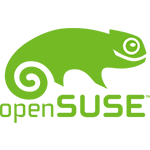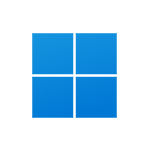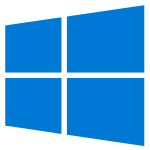Download operating system
for your personal computer.
Community
Community software is created with the help of open community members, and such software commonly known as 'open-source'. Open-source software released under the free license, and all users are allowed to redistribute such software, change its source code and use it for commercial purpose. Thousands of open-source software is available online today, and millions of projects have been deposited in GitHub.com.
In the case of operating systems, almost all Linux operating systems are released under open-source licenses, such as Ubuntu, Fedora, Linux Mint, Arch Linux, Debian and CentOS are based on open source software models.
Description
Community software is created with the help of open community members, and such software commonly known as 'open-source'. Open-source software released under the free license, and all users are allowed to redistribute such software, change its source code and use it for commercial purpose. Thousands of open-source software is available online today, and millions of projects have been deposited in GitHub.com.
In the case of operating systems, almost all Linux operating systems are released under open-source licenses, such as Ubuntu, Fedora, Linux Mint, Arch Linux, Debian and CentOS are based on open source software models.
Ubuntu
Ubuntu is a free and open source Linux operating system (currently the most popular Linux distribution) installed on over 40 million personal computers, and is installed on a large number of servers around the world. At present, there are four different editions of the operating system, which are Ubuntu Desktop (for personal computers), Ubuntu Server (for servers), Ubuntu for IoT, and Ubuntu Cloud (for cloud computing). Originally, the operating system was made for personal computers, currently the desktop version of Ubuntu comes with usefull free software applications, such as LibreOffice (Office software), Thunderbird (email client), Firefox (web browser), Media player, Photo management app, while more applications can be installed from Ubuntu Software Center.
Canonical Ltd. is a company that develops and maintains Ubuntu software, and promises to release a new version of the operating system every six months, while the LTS (Long Term Support) version is released every two years. Regular releases of Ubuntu get free support for up to nine months, while LTS release gets support for up to five years.
Notable features of Ubuntu
Some of the notable features of Ubuntu Desktop are:
- All Linux features.
- GNOME desktop environment.
- Useful applications are pre-installed, such as LibreOffice (office software), Thunderbird (email client), Firefox (web browser).
- Thousands of free apps on Ubuntu Software Center
- Free support.
- Live USB.
- Multilingual.
Ubuntu Facts
- The word 'Ubuntu' means 'humanity to others'.
- Ubuntu is based on Debian.
- Try different flavors of the Ubuntu.
Fedora
Fedora is a free and open source Linux operating system (or distribution) that has been developed by contributions from community members and Red Hat. Fedora was designed for personal computers and servers, and is currently available in three different editions, which are for Workstation (for personal computer), Server (for servers), and Atomic (for cloud computing). GNOME is currently the default desktop environment for the operating system, and the GNOME Shell is the default user interface. There are more other desktop environments supported in Fedora, such as Cinnamon, Xfce, and MATE. Like other Linux distributions, Fedora is bundled with many general software applications such as Firefox Browser, LibreOffice, Media Player etc.
Fedora is upstream for Red Hat Enterprise Linux, the company Red Hat shares many new features and technologies with Fedora in its commercial software.
Features of Fedora
Some of the notable features of Fedora are:
- All Linux Features.
- Choose between several different desktop environments.
- Support up to 13 months.
- Security-Advanced Linux.
- Live usb.
- Free of cost.
Fedora Facts
- Fedora is used as an upstream for Red Hat Enterprise Linux.
- More than one million users are using Fedora.

openSUSE
openSUSE is a free and open source Linux distribution (or operating system) designed primarily for desktop / laptop computers and servers. The first (or initial) version of the distribution was released in October 2005, and previously it was known as SUSE Linux. openSUSE is a complete and multipurpose operating system that is most suitable for individual users, system administrators and software developers. Like other Linux distributions, openSUSE supports various desktop environments such as GNOME, Cinnamon, KDE, MATE, LXQt, and Xfce, which users can choose before installing it on a computer. Users can also go with the default desktop environment provided by the company in the ISO image file. SUSE Linux Enterprise software such as SUSE Linux Enterprise Server, and SUSE Linux Enterprise Desktop uses the openSUSE operating system as codebase.
The default installation of openSUSE includes general software applications that are essential in personal and business computing, such as office suite, web browser, email client, media player, photo / video library manager, PDF viewer, file manager, VNC viewer etc., some other open source tools developed by the community such as YaST, Open Build Service, Firewall, openQA, Snapper, Machinery and Portus are also available in the installation.
At present there are two separate releases of openSUSE distribution, called 'Tumbleweed' and 'Leap'. Tumbleweed is a rolling release and contains the latest software guided by the development team, while the Leap release is considered stable and recommended to use it.
Notable features of openSUSE
Some notable features of openSUSE Linux distribution are:
- All Linux features.
- Multi-purpose operating system.
- Choose between many different desktop environments like GNOME, Cinnamon, KDE, and MATE.
- Useful pre-installed apps are bundled.
- Community build tools such as YaST, Open Build Service are available.
- Live Boot / CD / USB.
- Multilingual.
- Free and Open Source.
openSUSE facts
- openSUSE is the codebase of SUSE Linux Enterprise.
- openSUSE was first known as SUSE Linux.
- openSUSE is one of most popular Linux distributions.
MX Linux
MX Linux is an free and open source Linux operating system called the midweight and simple desktop OS. It is based on Debian stable branch and is using core antiX components with more software created by the MX community. About MX Linux, The developer team and community goal is to combine an elegant and efficient desktop with simple configuration, high stability, solid performance and a medium-sized footprint.
In terms of features, MX Linux comes with all the basic tools and apps you need in your personal computer such as a web browser, video player, music player, email client, office suite, backup tool, as well as MX tools, a specially designed suite for MX Linux with key functions that saves time and effort. MX Linux uses Xfce as the default desktop environment, while different ISO images may have more desktop environments available.
Features of MX Linux
Some of the notable features of MX Linux are:
- All Linux features.
- It is based on the Debian stable branch.
- It is a midweight and simple desktop operating system.
- It comes with MX Tools, tools to make common tasks easier.
- Useful apps are pre-installed, such as LibreOffice (office software), Thunderbird (email client), Firefox (web browser).
- Choice of different desktop environments.
- UEFI installer (64 bit and 32 bit).
- Live USB.
- Multilingual.
MX Linux Facts
- The name 'MX' was chosen to combine the first letter of the MEPIS community with the last of the antiX community.
Kubuntu
Kubuntu is an Ubuntu-based Linux operating system currently developed and maintained by the community. It uses the same built-in system as Ubuntu, with each package in Kubuntu sharing the same repository as Ubuntu, and it is released regularly similar to Ubuntu. The main difference between them is Kubuntu uses KDE software, while Ubuntu uses GNOME, which is why 'K' in Kubuntu means KDE. Among the flavours of Ubuntu, Kubuntu is an official and most popular flavour used by millions of users worldwide. Kubuntu mission is to provide the latest stable KDE software, including the flagship Project Plasma on top of a stable Ubuntu core.
In terms of features, Kubuntu has everything you need to work or entertain on your PC, including productivity pre-installed apps (Google Calendar, to-do list), Office (LibreOffice), email clients (Kmail), web browser (Firefox), graphics, photography, video (VLC), and music (Cantata).
Features of Kubuntu
Some of the notable features of Kubuntu are:
- All Linux features.
- KDE Plasma Desktop Environment.
- KDE Software.
- Useful apps are pre-installed, such as LibreOffice (Office software), Kmail (email client), Firefox (web browser), VLC (media player).
- Fast and beautiful.
- Live session.
- Multilingual.
- Free and open source.
Kubuntu Facts
- Kubuntu has millions of users worldwide.
- Kubuntu is based on Ubuntu.
- In Kubuntu, 'K' means KDE, overall it means Ubuntu with KDE.
Mageia
Mageia is a free and open source Linux operating system, started as a fork of Mandriva Linux. It is currently available for desktops and servers, and is development and maintenance is handled by the community. Mageia is said to be a stable and secure operating system, which aims to become and maintain a reliable and recognized community in the world of free software.
KDE Plasma is the desktop environment in Mageia OS, but it comes with all the major desktop environments available in various installation files. Mageia providing a huge repository of software, such as productivity apps and a variety of games. The default installation which is packed with essential apps we need to work and entertain like Firefox web browser, LibreOffice, GIMP, VLC media player, and more.
Features of Mageia
Some of the notable features of Mageia are:
- All Linux features.
- Mageia offers a huge repository of software.
- You can choose between multiple desktop environments such as KDE Plasma, GNOME, or XFCE.
- Useful apps are pre-installed, such as LibreOffice (Office software), Firefox (web browser), VLC media player (media player).
- Live session.
- Multilingual.
- Free and open source.
Mageia Facts
- Mageia was forked from the Mandriva Linux distribution.
- Mageia is a community project, supported by many companies worldwide.
- Mageia can use all major desktop environments.

